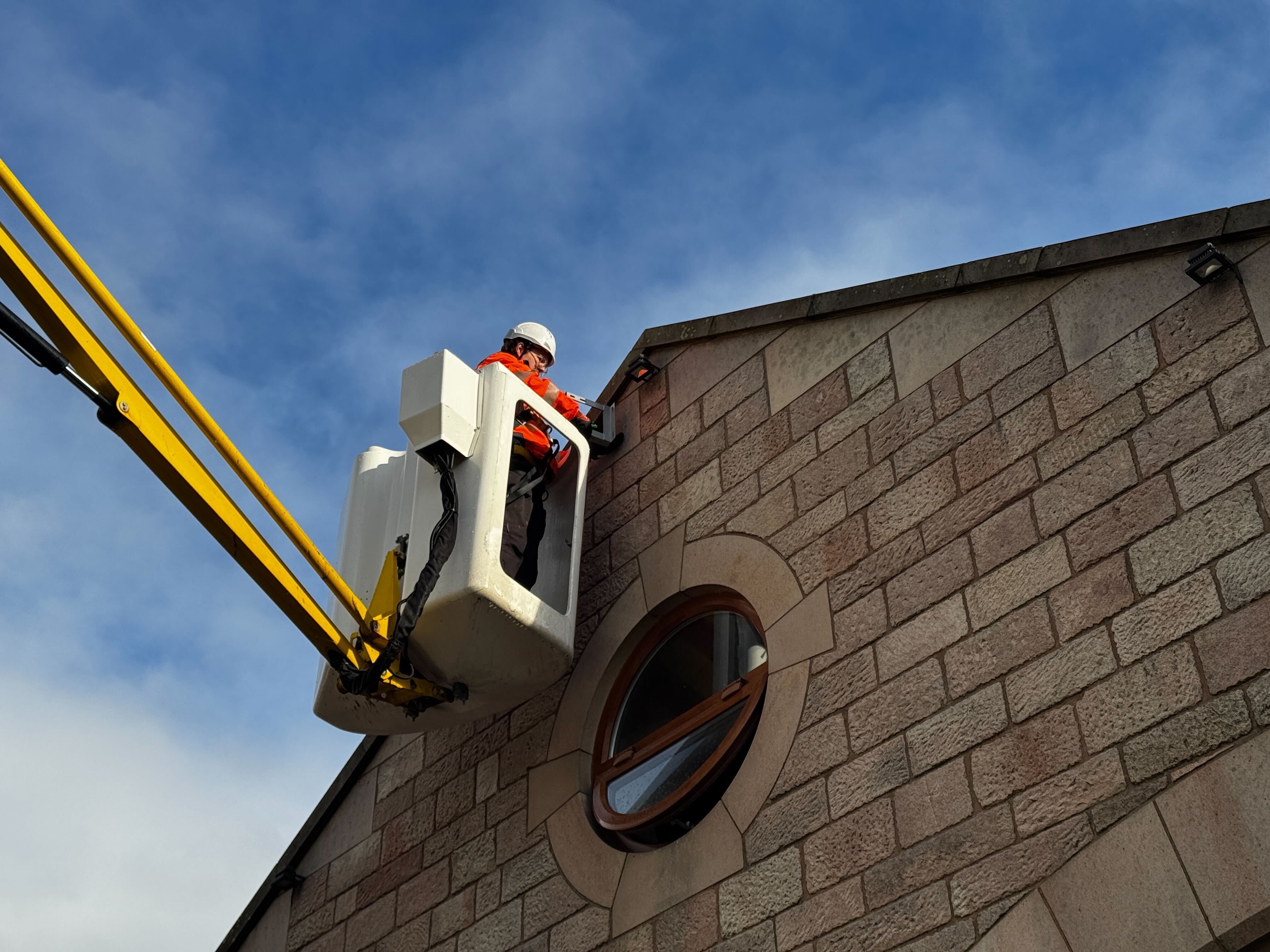Ring ring – it’s the digital age on the line. Imagine making phone calls over the internet instead of traditional phone lines. Enter VoIP.
VoIP, such as our Connect Fibre Phone, is another nifty bit of technology designed to make our lives easier and more connected. Communication is key, and the simplicity of VoIP ensures you don’t have to be tech-minded whatsoever to keep in tough wherever you are.
VoIP is much more than just a fun-to-say buzzword, but what exactly is it, and how does it work? In this guide, we'll dive into VoIP, exploring its benefits, how it works, and why it's becoming increasingly popular (and soon to be essential) way of communication.
What is VoIP?
VoIP, or Voice over Internet Protocol, is a technology that allows you to make voice calls using an internet connection rather than a conventional phone line. It converts your voice into digital data and transmits it over the internet to the recipient, where it's converted back into sound.
How Does VoIP Work?
VoIP works by breaking down your voice into small data packets, similar to how email or web pages are transmitted over the internet. These packets are then sent over the internet to the recipient's device, where they're reassembled into sound. This process happens almost instantaneously, allowing for real-time voice communication.
What are the Benefits of VoIP?
There are numerous benefits of VoIP, many of which encapsulate why we’re so proud of our Connect Fibre Phone offering. Here’s just a few:
Cost Savings
One of the biggest advantages of VoIP is cost savings. Since VoIP calls are transmitted over the internet, they bypass traditional phone networks, resulting in lower costs for both domestic and international calls.
Clear Voice Quality
Our Connect Fibre Phone customers enjoy quality calls consistently. VoIP offers clear voice quality, ensuring every word is heard loud and clear, no matter where you are.
Take Calls Anywhere
VoIP allows you to make calls from anywhere with an internet connection, whether you're at home, in the office, or traveling abroad. This flexibility is especially useful for remote workers or frequent travellers.
Features
VoIP offers a range of features that traditional phone services may charge extra for or not offer at all, such as voicemail to email transcription, call forwarding, and video conferencing, making it a great option for businesses.
Disadvantages of VoIP
While VoIP technology offers numerous benefits, like any technology, it has its drawbacks too. Here are some of the main disadvantages of VoIP to consider:
Bandwidth Usage
VoIP can eat into your bandwidth, especially with high call volumes or when video features are used. This can be a challenge if capacity is limited. Head to our package finder to see exactly which broadband package you need for your usage.
Limited Location Tracking For Emergency Calls
VoIP services can have limitations when it comes to emergency. Since VoIP calls are internet-based, pinpointing the exact physical location of the caller can be more difficult than with traditional landlines.
Network Latency
VoIP calls are susceptible to various network-related issues that can affect sound quality. Jitter, or the variation in time between packets arriving, can cause calls to sound choppy or garbled. This, combined with latency (the delay before a transfer of data begins following an instruction for its transfer) and packet loss (where data fails to reach its destination), can significantly degrade communication, making conversations difficult to understand.
VoIP vs Landline: What’s the Difference?
When comparing VoIP and traditional landlines, it’s clear that both serve the same basic purpose—allowing you to make and receive phone calls—but they do so in fundamentally different ways, each with its own set of advantages and disadvantages. Here's a closer look at the key differences between VoIP and landline phone systems:
Technology and Infrastructure
- VoIP: This technology uses the internet to transmit voice calls as data packets. VoIP converts your voice into digital signals that travel over the internet or private data network lines. This requires an internet connection, a compatible device and VoIP software.
- Landline: Traditional landlines use copper wires to transmit voice communication. This analogue technology is entirely separate from the internet and relies on a vast network of physical wires and switches maintained by telephone companies.
Mobility and Flexibility
- VoIP: Offers high mobility; you can make and receive calls from anywhere with a stable internet connection. This is particularly useful for those who travel frequently or work remotely. VoIP systems often come with features that allow integration with other communication applications, enhancing flexibility.
- Landline: Generally fixed to one location. You use the phone only where the physical phone line is installed, which limits mobility. Moving a landline service to a new location often involves physical reinstallation and associated service fees.
Cost
- VoIP: Typically more cost-effective than landlines, especially when it comes to long-distance and international calls, which are much cheaper with VoIP. Many providers offer flat rates with unlimited calling and integrated services like video calls, messaging, and conferencing.
- Landline: Can be more expensive, particularly for long-distance communication. Pricing often involves a base fee for local calls with additional charges for long-distance services.
Features
- VoIP: Comes with a wide range of additional features at no extra cost, including caller ID, call forwarding, voicemail to email, video calls, and the ability to use the same number across multiple devices.
- Landline: Features are generally more basic, typically including caller ID, call waiting, and voicemail. Additional features often come with extra charges.
Call Quality
- VoIP: While generally high, the call quality can vary depending on your internet connection. Issues like jitter, latency, and packet loss can affect the clarity and consistency of calls.
- Landline: Known for consistent, high-quality voice transmission without reliance on internet quality. Less susceptible to variations in call quality.
Are VoIP Calls Free?
VoIP pricing depends entirely on the provider and the package they offer. With our Connect Fibre Phone, we have two packages. With our Anytime package, you get unlimited UK and mobile calls for £10 a month, while our Global package has all that plus 600 international minutes for £15 a month.
Do I Need A Landline If I Have VoIP?
No, you don't have to have a landline if you choose to use VoIP for your phone service. VoIP provides a flexible and often more cost-effective alternative to traditional landline phone services by using your internet connection to make and receive calls. You may decide to keep a landline, but it isn’t essential.
Can I Replace My Landline With VoIP?
Yes, you can absolutely replace your traditional landline with VoIP. In fact, many people are making the switch from landlines to VoIP for a variety of reasons, including cost savings, enhanced features, and flexibility.
Do I Have To Change To VoIP By 2025?
The digital switchover is expected to come into effect in 2025. This means you’ll need to switch to a internet-based alternative to analogue networks, such as VoIP, by then. If you have any questions about the switchover and how we can help you, don’t hesitate to contact our friendly team.
Which VoIP Provider is the Best?
Did you really need to ask? We may be ever so slightly biased, but our Connect Fibre Phone fits the bill. Read our Connect Fibre Phone guide to find out why we love shouting about it so much.
Get Connect Fibre Phone
VoIP systems are undeniably the future of communication. Check out Connect Fibre Phone and see how it can revolutionise your communications.


.png)
.png)
